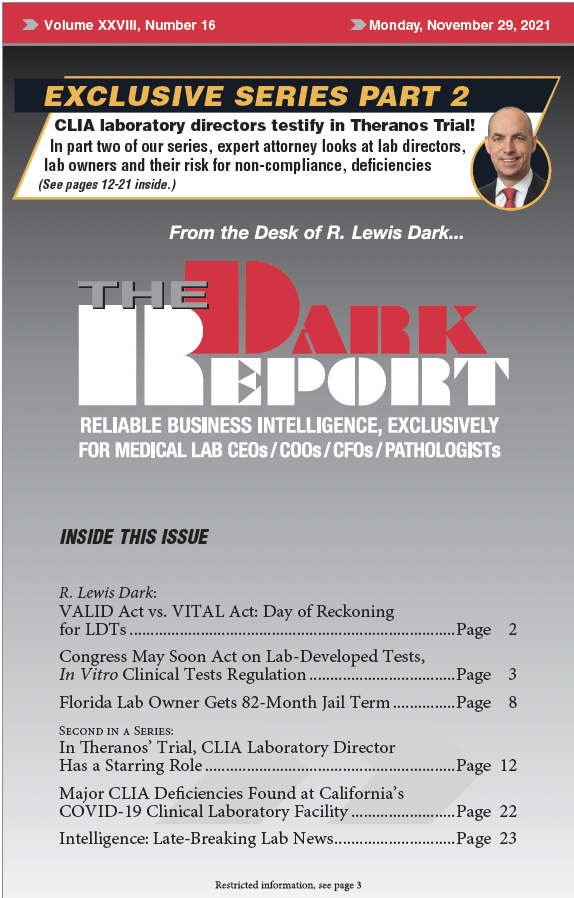CEO SUMMARY: Federal prosecutors are sending a clinical lab owner to federal prison for almost eight years. Hopefully, this is a sign that the Department of Justice (DOJ) is ready to use criminal indictments more frequently against lab owners, lab managers, and lab sales reps who violate the federal anti-kickback statute. Morever, this case is …
Florida Laboratory Owner Gets 82-Month Jail Term Read More »
To access this post, you must purchase The Dark Report.


